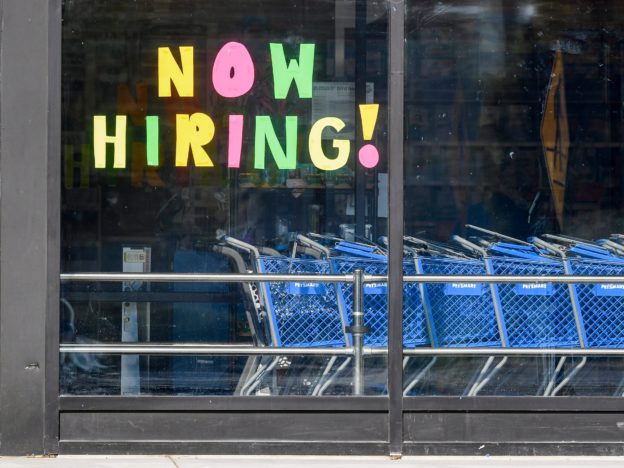Some companies are struggling to hire staff months after their states cut enhanced jobless benefits.
One Florida restaurant said it hired high school students and got staff to work more overtime.
Workers say they want higher pay, better benefits, and a different work environment.
Loading
Something is loading.
Some companies in states that cut enhanced unemployment benefits months ago say they’re still struggling to find workers.
The Ledger reported that some companies in Polk County, central Florida, were struggling to find enough workers more than two months after the state cut the extra benefits. Insider has reported on a similar situation in Alabama, which cut enhanced benefits in mid-June.
The enhanced federal unemployment benefits, which were introduced in March last year at the outset of the pandemic, expire across the US on Monday. The added benefits include a $300 weekly supplemental payment to unemployed individuals through the Federal Pandemic Unemployment Compensation program (FPUC).
Some states have already cut the enhanced benefits. Florida Gov. Ron DeSantis cancelled FPUC on June 26, prompting a lawsuit from residents who said that without the benefits they couldn’t afford housing, utilities, food, healthcare, and childcare.
Some business owners hope that cutting the enhanced benefits will mark the beginning of the end for a crippling labor shortage that has caused companies to slash opening hours, limit operations, and raise prices.
It’s too early to see what impact the end of supplemental benefits has had on Florida’s employment rate, but business leaders and owners told The Ledger that the labor shortage continued to hurt them.
“Anywhere you go out into the community, you see help wanted signs and you see businesses doing all types of strategies to encourage people to apply and interview,” Cory Skeates, CEO of the Lakeland Chamber of Commerce, told the publication.
Ray Sykes, who owns the Italian restaurant Arabellas in Winter Haven, told The Ledger he was still struggling to find staff as more and more people want to dine out. Now the restaurant has cut the number of reservations it takes on weekends and service is slower, Sykes said. He said he had to hire workers still at high school who have little to no experience. Current staff are working overtime, and managers are having to work six days a week, he said.
In late August, at least three Chick-fil-A restaurants in Alabama closed their dining rooms because they didn’t have enough employees to keep them open, and two more started shutting early “due to extremely short staffing.” Some applicants didn’t show up to interviews, or accepted roles “only to resign within their first couple weeks,” one of the restaurants said.
Peter Ricci, head of Florida Atlantic University’s hospitality and tourism management program, previously told Insider that blaming the tight labor market on supplemental unemployment benefits was a short-term view.
He said that it actually stemmed from issues “that have been laying low for years.” Workers say that low pay, bad benefits, and a lack of flexible hours are causing them to quit their jobs in droves. One former bartender told Insider he pivoted to a career in tech so he could work more sociable hours and spend more time with his wife.

Comments are closed